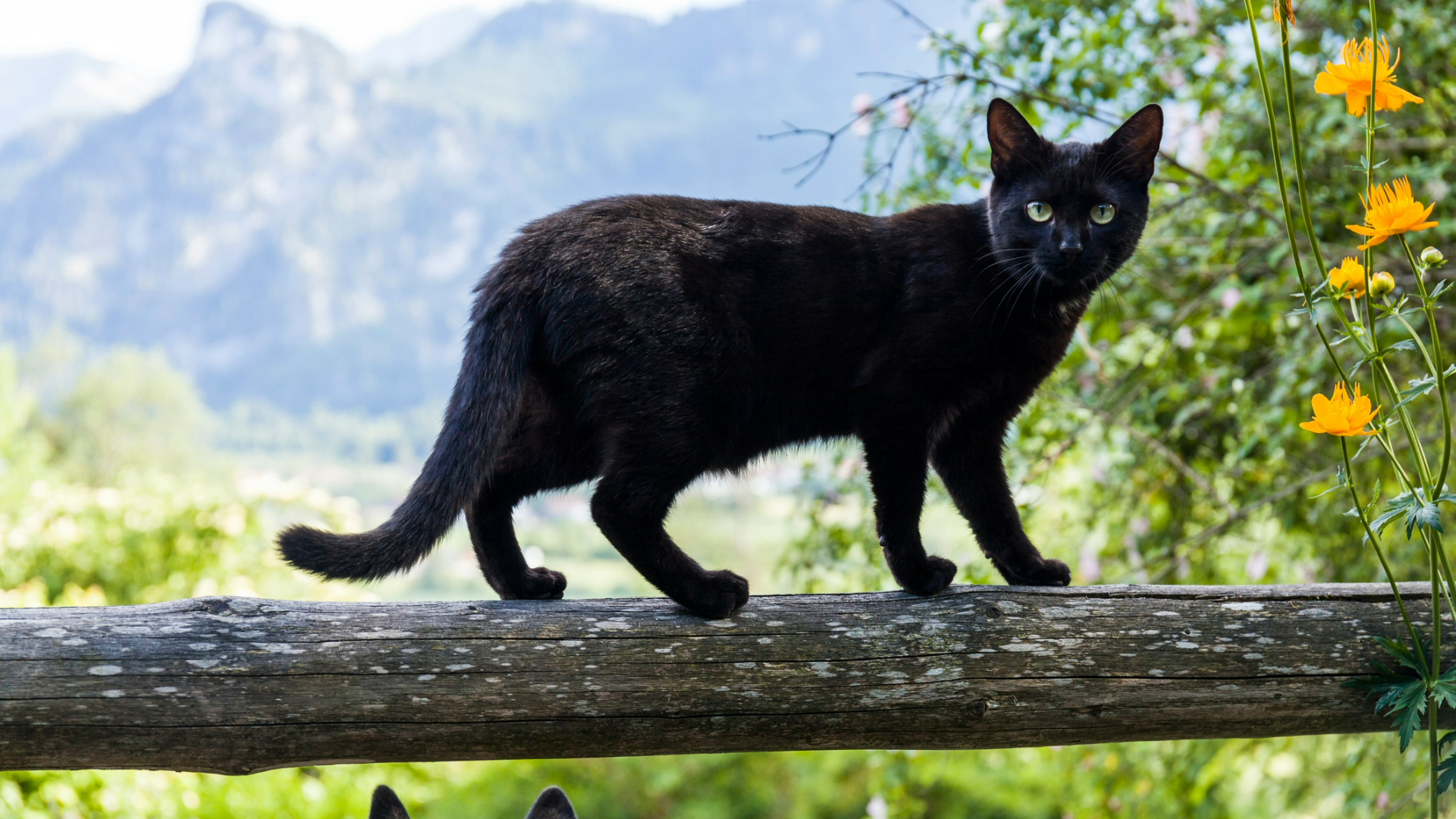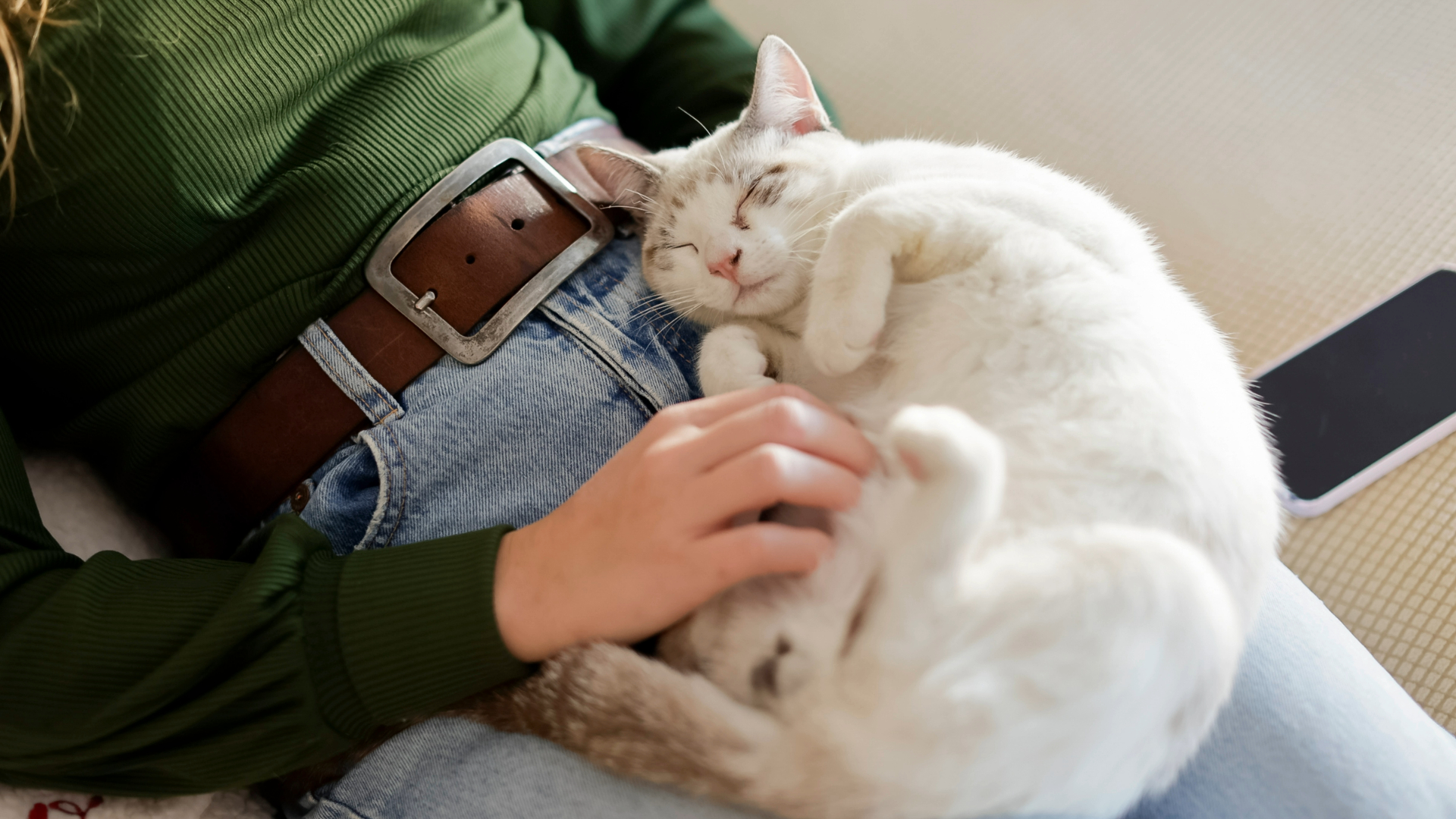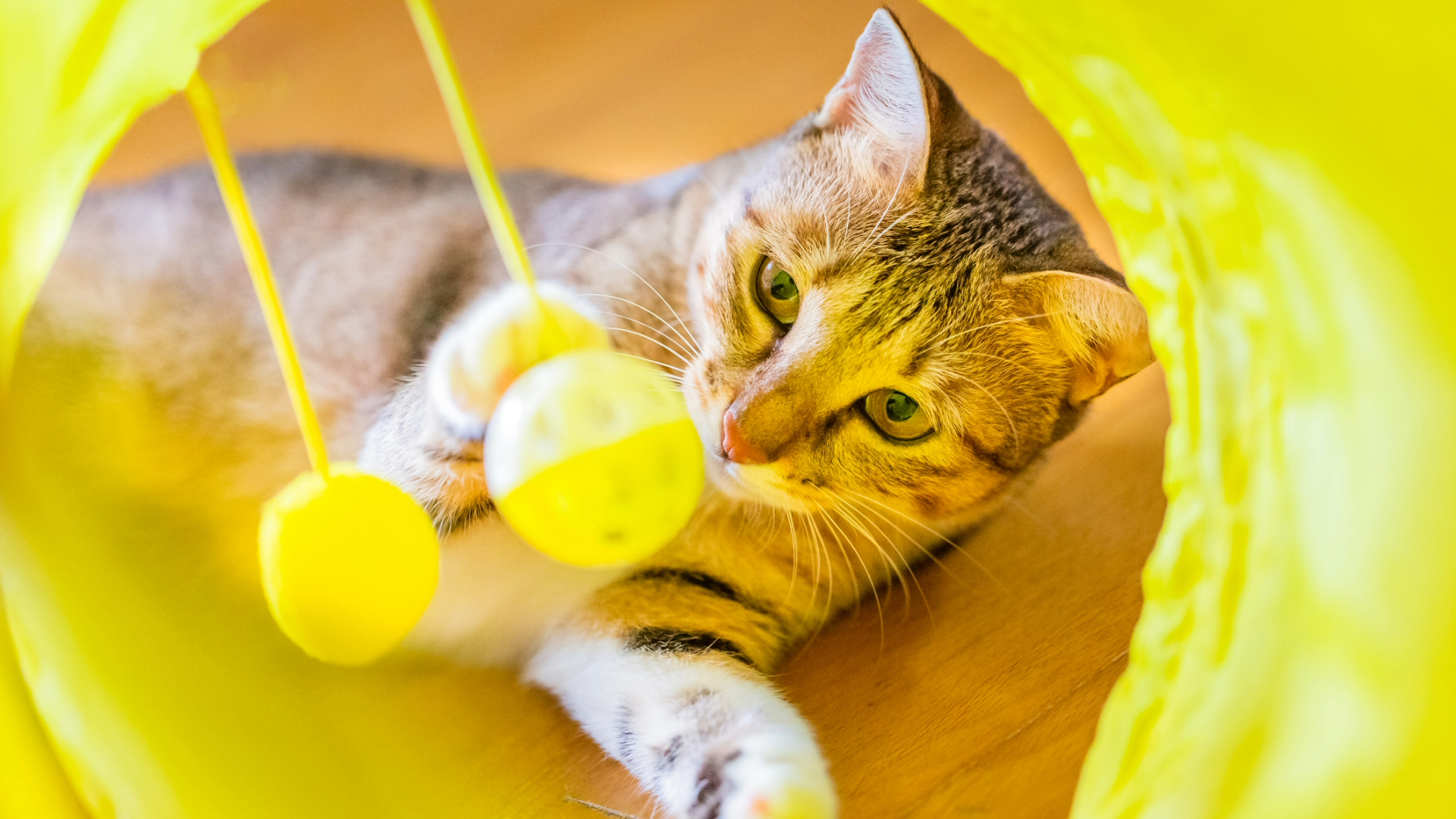
If you’ve ever wondered, 'Do cats actually have nine lives?', you're not alone. We often find ourselves looking at our feline friends and musing about how they manage to get out of so many scrapes and scares with their nonchalant attitudes still intact.
While they might not actually have the ability to reanimate after death and carry on with their business, cats are incredibly agile and smart, and have more than a few little 'superpowers' that make them great survivors.
You can help your cat along with a few easy longevity tips, like keeping them active and mentally stimulated using the best cat toys.
Here's everything you need to know about this myth and how to give your cat a long, happy life:

Dr. Lily Richards is a vet with 11 years of experience in farm, equine, small animal and exotic patient care. After running a busy clinic she took a step into client education focusing on getting the right information to those that need it and are searching for help and advice from professionals online.
Do cats really have nine lives?
Unfortunately, cats don’t have a mystical ability to come back to life. However, they do have some rather fantastic features that help them to survive life-threatening situations. Their speed, agility, and ability to land on their feet when falling from great heights help them pull off death-defying maneuvers, leading to the myth that cats have multiple lives.

Why do people say that cats have nine lives?
The history behind the nine lives myth is murky: with some sources suggesting that it comes from ancient Egypt, and others indicating that it came about when English ship cats survived falling overboard in sea storms, reappearing the next day having climbed back onto the ship.
The myth likely came into being when historical cat owners kept finding their seemingly indestructible kitties calmly bathing in the sun after a near miss with traumatic death or injury.
PetsRadar Newsletter
Get the best advice, tips and top tech for your beloved Pets

How long do cats live for?
“The average lifespan for a pet cat is 13 to 14 years, but a well cared for cat may live 20 to 30 years,” says vet surgeon Dr. Lily Richards. “Indoor cats generally come across less risk of traumatic injury or infectious diseases and so may be considered to be more likely to reach a greater age compared to their adventurous outdoor counterparts.”
One of the oldest cats ever, Creme Puff, lived to a whopping 38 years old and while this is far older than average, we can live in hope that our kitties will live that long too.
Sadly sometimes cats also don’t reach their full potential lifespan. While we can protect them from as much as possible, sometimes accidents and illnesses happen.
Dr. Richards says: “Factors such as breed and genetics are outside of owners' control, some cats are more prone to some life-limiting conditions such as heart disease, so although we can care for them the best way we can, sometimes nature will take its course."

How to give your cat a long and happy life
Want to give your cat a long and happy life? Of course you do! Here are our top tips:
1. Make sure they have all of their vaccinations
“A healthy cat is generally one that is protected from common diseases and infections with routine cat and kitten vaccinations,” says Dr. Richards. “Of course, which preventative measures you decide to support your pet with, will depend on their lifestyle. Common 'core' vaccinations include protection against feline flu and enteritis, as well as leukemia. Some vaccines also include a chlamydia component.”
2. Nutrition
“Ensure that you are feeding your cat a high-quality diet, produced by a company that values clinical studies and research, alongside suitably qualified nutritionists, to ensure that the diet is balanced and ingredients of high quality to promote the best health in your cat,” advises Dr. Richards.
When it comes to keeping your cat fit and healthy, a high-quality cat food is top of the list. This seafood pate includes three different flavors in pre-portioned trays. Plus, it's grain-free.
3. Lifestyle
“Indoor cats tend to have greater longevity than their outdoor counterparts due to reduced risk of traumatic injury, infectious diseases, and parasite burden,” explains Dr. Richards. “Considering whether your cat is allowed unlimited free time outside, is closed in overnight, or kept indoors full-time is a decision you can make depending on your location, external risk of traumatic injury (closeness to busy roads), and risk of predation (local wildlife risk).”
If your cat has Feline Immunodeficiency Virus (FIV) they will need to live indoors full time to avoid the spread of the virus and to protect your cat from standard illnesses that can have a serious impact on their weakened immune systems.
“Indoor-only cats need plenty of enrichment and stimulation to keep their minds active and happy. So choose carefully with all these factors in mind,” she adds.

4. Parasite prevention
“Aimed at fleas, ticks, mites, and lice to prevent a range of diseases caused by or transmitted by these creepy crawlies,” says Dr. Richards. “If you have questions regarding protecting your cat, speak to your [vet] clinic.”
It is also important to keep your cat up to date with their anti-worm medication, which can be purchased as a tablet, paste, or powder. Parasitic worms such as tapeworms or heartworms can negatively affect your cat's health, so in this case, prevention is always better than cure.
5. Enrichment
“Keeping your cat's mind healthy and happy is equally as important as nutrition, lifestyle and preventative care,” says Dr. Richards. “Spending time with your cat playing with toys, enjoying grooming, and sharing affection will keep their hearts full and minds happy which in turn affects their physical health. Don’t forget the cuddles and love (if your cat is on board!).”
Your cat’s environment should be both stimulating and safe, so they can feel secure enough to play and rest as much as they need. You can keep them entertained with the best cat toys.
If you have an indoor cat, make sure to keep them entertained with some of our favorite toys, such as this one. There's a reason why it was voted as the 'best overall cat toy' in our best cat toys buying guide.
If you’re looking for more ways to give your cat the best start in life, check out our guide to 32 ways to raise a happy and healthy kitten. Cat road safety is also vitally important in keeping your feline friend safe, so make sure you’re up to date on the latest advice.

Lou is an experienced writer and keen dog lover who works at PetRadar's sister sites, LiveScience, Fit And Well and Coach. When Lou isn't covering health and fitness, she's busy spending time with her rescue lurcher, Dixie, horse riding or growing all kinds of veggies and flowers on her allotment.
Lou grew up with dogs and got her first dog in 2023 after many months of searching. Dixie is a six-year-old brindle greyhound lurcher (with lots of saluki mixed into her DNA too). Dixie was very uncertain and nervous when she first came home with Lou, who is her third owner, but after lots of time and care, she is now a happy, confident dog (with lots of canine and human friends!)


